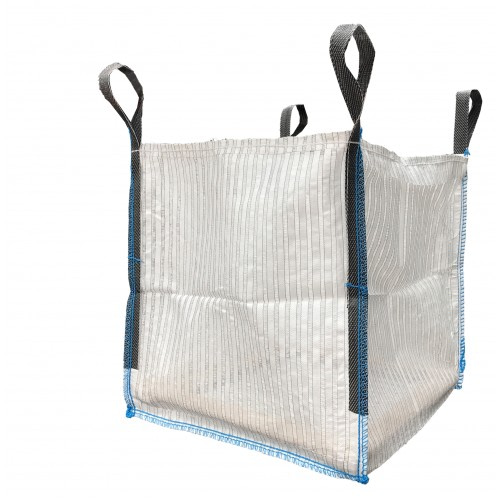
Flexible intermediate bulk containers (FIBCs), also known as bulk bags or jumbo bags, are a popular and versatile packaging solution for storing and transporting a wide range of materials. FIBCs come in various sizes, materials, and configurations to meet different needs. This article shares some best practices for choosing and using FIBCs effectively.
Choosing the Right FIBC:
- Consider the product to be stored or transported: Different products require specific FIBC features, such as food-grade certification for food products or anti-static properties for flammable materials.
- Select the appropriate size: FIBCs come in various sizes, from small 500 kg bags to large 2000 kg bags. Choose the size that best suits your product quantity and handling requirements.
- Choose the right material: FIBCs are commonly made from polypropylene, but other materials like polyethylene and coated fabrics are also available. Each material offers different properties, such as strength, moisture resistance, and UV protection.
- Consider additional features: Some FIBCs have features like spout closures, discharge valves, and lifting loops for easier filling, emptying, and handling. Choose the features that best suit your specific needs.
Using FIBCs Safely and Effectively:
- Follow the manufacturer’s instructions: Always follow the manufacturer’s guidelines for filling, stacking, and transporting FIBCs to ensure safe handling and optimal performance.
- Properly fill and load FIBCs: Do not overfill FIBCs and ensure they are evenly loaded to prevent damage and maintain stability.
- Use the right lifting equipment: Use appropriate lifting equipment, such as forklifts or pallet jacks, designed for FIBC handling to avoid accidents and injuries.
- Store FIBCs properly: Store FIBCs in a dry, cool, and well-ventilated area away from direct sunlight and sources of heat or ignition.
- Inspect FIBCs regularly: Inspect FIBCs for signs of damage, such as tears, holes, or loose stitching, before each use and discard any damaged bags.
Conclusion:
FIBCs are a reliable and cost-effective packaging solution for various industries when chosen and used correctly. By following the best practices outlined in this article, you can ensure the safe and efficient use of FIBCs for your specific requirements.
Additional tips:
- Consider working with a reputable FIBC supplier who can provide expert advice and customized solutions based on your specific needs.
- Keep up-to-date with industry regulations and standards related to FIBC use and safety.
By following these tips, you can maximize the benefits of using FIBCs for your business.
